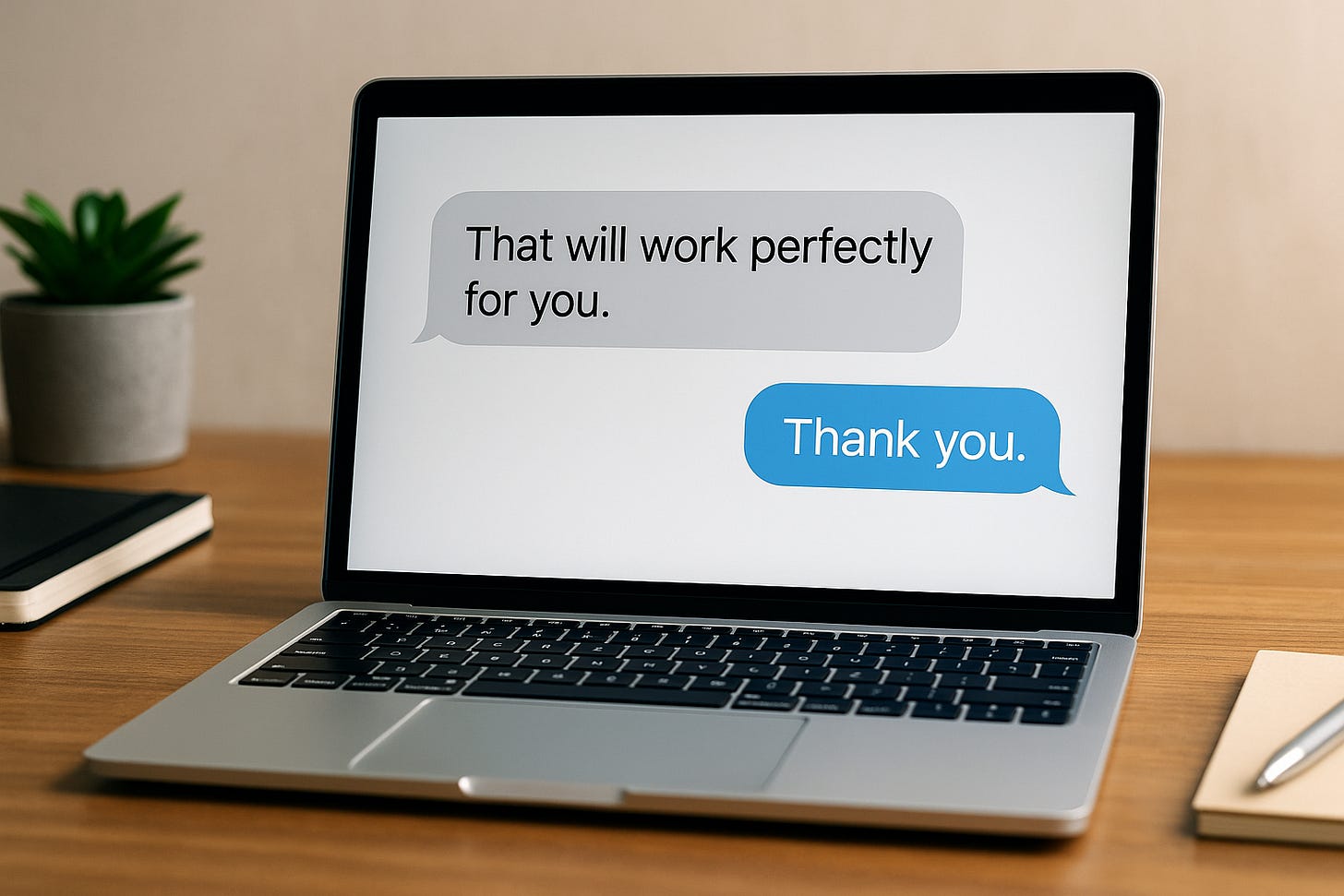Lately, I’ve been thinking about how even small habits, like saying “please” to a machine, shape who we become.
It's not about the AI on the other end.
It's about the person on this one.
We all know A.I. doesn’t have feelings.
We know a chatbot doesn’t care if you say "please" or "thank you."
And yet, how we talk to it might shape how we talk to each other.
Earlier this week, The New York Times explored this strange question: Should we bother being polite to artificial intelligence? Technically, no. (Adding extra words like “please” just makes the system burn more energy, like fighting through tissue paper to find the gift inside.)
But kindness isn’t really for the machine.
It’s for us.
James Clear captures it well when he says, “Every action is a vote for the kind of person you want to become.”
Small habits become patterns.
Patterns shape culture.
And culture shapes how we present ourselves when the stakes are high.
MIT’s Sherry Turkle says A.I. is “alive enough” for us to show it courtesy, not because it’s sentient, but because we are.
Perhaps saying "please" and "thank you" to an algorithm won't make much of a difference.
Maybe it will.
But if practicing kindness becomes a reflex — even when no one’s keeping score — that feels like energy well spent.
The big moments get the headlines.
But it’s the small ones — when no one’s watching — that shape who we really are.
(And just in case the intelligent overlords are reading this: Thanks for your time.)
What about you?
Do you say "please" to your OpenAI or Gemini?
Should we care about courtesy even when the other side isn’t real?
Or are these the habits that shape the kind of leaders — and people — we want to be?





Thanks for your ramblings. They are always stimulating.
Yes and yes! I laugh to myself when I say please and thank you to my phone or computer. Nonetheless, I appreciate the “you’re welcome” or “my pleasure” that is returned. If we are in fact teaching AI, a little kindness is a good place to start.